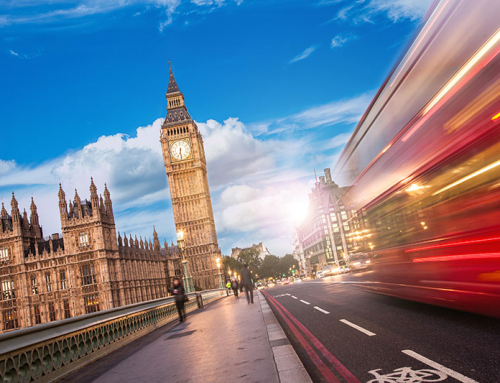After two years of cancelled plans, QR codes and nose swabs, the end of the coronavirus pandemic in the UK has become incredibly difficult to envisage.
However, after cases fell by more than a third in a week, the World Health Organisation’s COVID chief has suggested that the conclusion of the pandemic is in sight for Great Britain.
With the government announcing the end of ‘Plan B’ restrictions, and the scientific belief that the virus might be reaching an “endemic” stage – can we expect a return to normality in the coming months? If so, what does this mean for the country’s economy? In this week’s blog, we’re exploring the outlook for a post-pandemic Britain.
Endemic COVID?
Education Secretary Nadim Zahawi recently suggested that COVID-19 could soon become “endemic” in the UK – but what exactly does this mean? In short, a disease that’s endemic is continuously present in a given population at a lower and more stable level, even if cases spike under certain conditions. Influenza and the four human coronaviruses that cause common colds are endemic, but they do not prompt significant public health interventions.

The end of Plan B
On Wednesday, Prime Minister Boris Johnson confirmed that Plan B measures to control the spread of coronavirus in England will be allowed to expire. Face masks will no longer be compulsory in shops and other indoor public places in England from next Thursday. When restrictions lift, people will still be “encouraged” to continue wearing face coverings in enclosed spaces or when coming into contact with people you do not usually meet.
Mandatory COVID passes, working from home guidance and face coverings in classrooms for secondary school children are also being scrapped, as the nation returns to “Plan A”. If data supported it, the government may end the legal requirement for people to self-isolate if they test positive before the regulation lapses in March.
Economic optimism
GDP figures for November published by the Office for National Statistics last week revealed the UK economy is now larger than it was before the pandemic struck. This underlines the upward trajectory the recovery was on before the imposition of Plan B measures in early December.
After two years of disruption, businesses across the United Kingdom will be hoping that this marks the beginning of a final winding down of trading restrictions. It’s clear from statistics that the British economy is raring to grow and the lifting of these restrictions is a huge step toward allowing that to happen.

Targetfollow
At Targetfollow, we welcome the move and the data backs it up – cases are falling, while hospitals are not showing signs of becoming overwhelmed by the virus. The government’s announcements should go some way to offering the certainty that businesses have desperately needed to invest and provide the engine for growth that will drive recovery.
Ending the work from home guidance will also be welcomed by businesses in the city and town centres that rely on footfall from office workers. It will also be a welcome change for office-based firms that are trying to develop a consistent approach to how their employees work for the long term.






